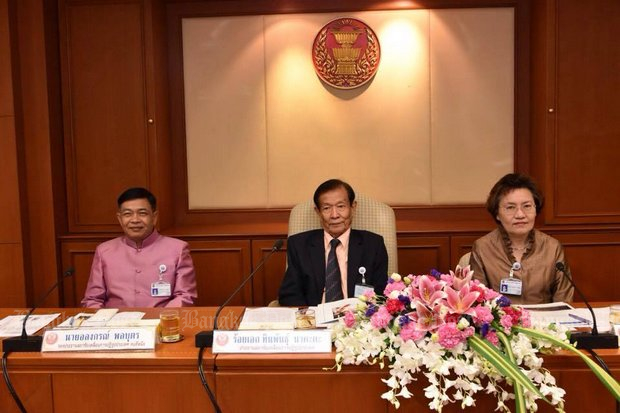
The National Reform Steering Assembly (NRSA) is advocating slashing funds set aside for overseas trips undertaken by members of different parliamentary committees, fearing the panelists might use these for personal holidays.
The proposal is a part of a report on reforming the parliamentary work practices which will be presented by the NRSA's political reform steering committee to the NRSA for approval on Tuesday.
The report targets members of parliamentary committees as well as secretariats of the House of Representatives and the Senate.
Seri Suwanpanont, chairman of the NRSA's political reform steering committee, said the report's key points included a proposal to stop funding overseas travel undertaken by parliamentary committees. In the past, various panels from the two Houses were earmarked substantial budgets for overseas trips, taking place several times a year.
Mr Seri said such trips mostly served as holiday excursions and there was no way of evaluating their worthiness against the budget spent.
He believes overseas travel by panelists should be abolished and any committees which wish to go abroad should use their own money.
The proposal does not include parliamentarians who are assigned to attend international parliamentary meetings or bilateral meetings with their counterparts, Mr Seri said, but they would still need to strictly comply with regulations on state officials' overseas travel.
Another proposal is that procurement of portable computing devices for parliamentarians should be stopped.
Mr Seri said most lawmakers appear to have smart phones which are as effective as the devices provided.
Mr Seri said his panel would also recommend a code of ethics for lawmakers be established with clear guidelines, indicating which practices are deemed a "severe breach of ethics" and what the punishments would entail.
The ethical standards laid out by the Constitutional Court should be adopted, he said.
For minor misconduct, such as being absent from parliamentary meetings, warnings should be given first with the offenders signing to acknowledge receipt, Mr Seri said, adding that if the misconduct is repeated, the offenders should be forced to apologise before a meeting and more than two infractions be deemed "severe breach of ethics".
Referring to severe ethical misconduct, Mr Seri said they include using other lawmakers' electronic cards to cast votes in parliament, resorting to violent means such as throwing items and making threats to others, as well as conduct deemed damaging to another parliamentarian's reputation.
The punishment for a breach of ethics ranges from cutting benefits and a public declaration of misconduct via the media to being fined between 100,000 and 500,000 baht.